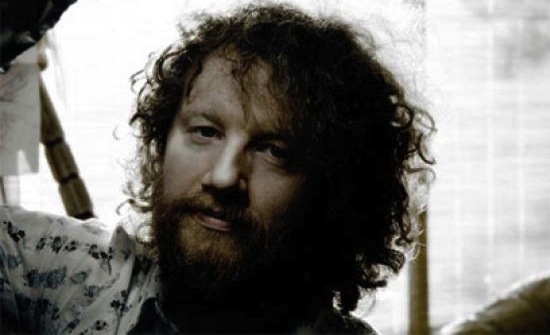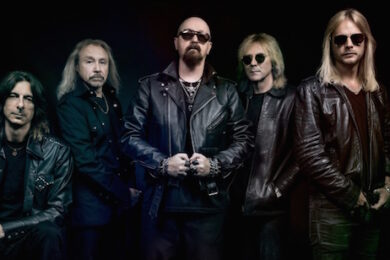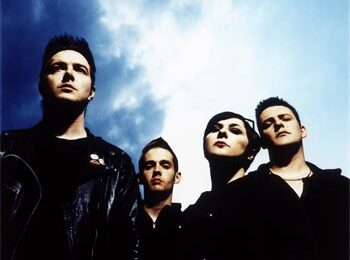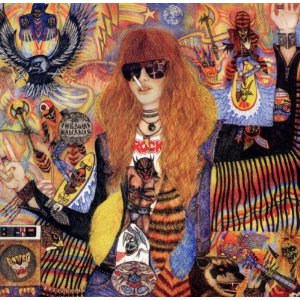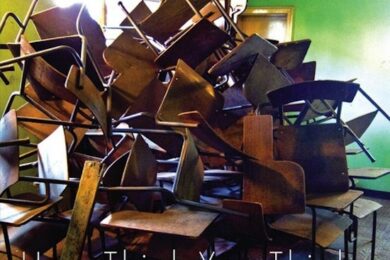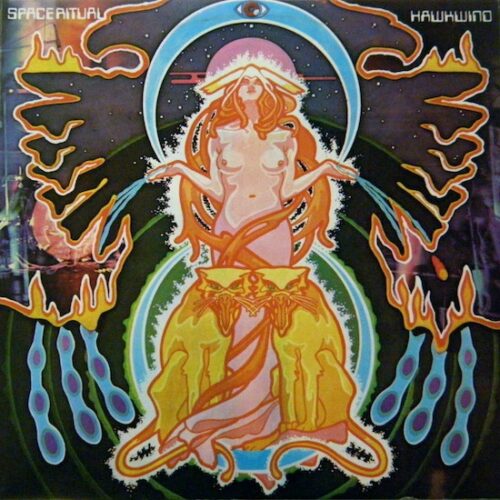Martin Carr, formerly of The Boo Radleys, bravecaptain and now recording under his own name, grew up in Wallasey on the Wirral in the 1970s. His dad was into Rod Stewart, Dylan and the Stones, while his mum, a bit older, favoured Frank Sinatra and 1950s singers like Chet Baker. They’d play records once Carr and his siblings were in bed, so most of the music he listened to "was coming out of the telly", he reveals over the phone from his home in Cardiff. "I didn’t really go looking for music until the mid-80s. I was always perfectly happy with what was on the radio and in the charts. I thought it was fantastic."
The idea of being in band came about when Carr met Simon "Sice" Rowbottom at school when he was "11 or 12. I was really into The Beatles and he was really into The Stranglers, because of his older brother. We’d go back to his house after school and play Queen and Stranglers albums. His brother had the whole ‘men in black’ thing going. Then Sice would put his Worzel Gummidge single on – Sice could actually speak Worzelese. We immediately started talking about being in a band and we talked about it for seven or eight years until we finally started doing something. We got guitars for Christmas 1982 and we thought we’d pick them up and just play whatever we wanted to play. Then we realised you actually had to learn it, so they went back into the cupboard for quite a long time. We’d get them out to take photographs of us with them. It was hard. I’ve only just started to play the guitar well in the last ten years. It was like homework, but it had to be done so we could be in a band."
That band was The Boo Radleys. They made six albums together, one a work of stone cold genius (1993’s Giant Steps, which somehow melded dub, noise rock, Sixties psychedelia, jazz, ambient and dance into a cohesive whole), but would come to be defined by one hit record – the jaunty Britpop perennial ‘Wake Up Boo!’, an unedifying epitaph for such a forward-thinking guitar band. After the Boos’ demise, Carr became bravecaptain. His output was prolific, but erratic, and hard to follow for even the most diehard fan.
"I left the Boo Radleys with intentions to make big pop records that fused Kid606 with the Beach Boys and dub and soul, but it didn’t really happen," he explains. "I was a drunk, great fun probably, but no use to anyone, let alone myself. There’s a great quote from Chuck D from Crack magazine that I cut out and kept because it describes the way I was then perfectly – ‘If you’re just acting like a goddamn fool with no fucking direction, you’re only a danger to yourself. You ain’t truly a threat to nothing if you ain’t got your shit together.’ Slowly but surely everyone left me to it. I’d blown it. The last nine years have been me having to deal with that."
Carr has always been his own worst critic. The first time I interviewed him I told him how much the Boos’ second album, Everything’s Alright Forever, meant to me. "I’m glad it means something to you because it means absolutely nothing to me," he replied. After archiving all the songs he’d ever written on a SoundCloud page, he then tweeted, "There were a couple of things that made me cringe they were so bad. Adrenalin ep, some b-sides, first bc (bravecaptain) albums. Yikes."
Carr’s first solo album, 2009’s Ye Gods (and Little Fishes), was easily his best since Giant Steps, but despite plenty of critical acclaim it didn’t really take off. So Carr took time off to help raise his young family. "I didn’t have a manager or a label or anything like that, so even though I was writing again, I wasn’t finishing anything," he explains. "I ended up with a lot of verses and choruses and middle eights lying around the place and it wasn’t until 2011 that I had some time just after our second child and finished the songs for this album. I was trying to find work and I guess I thought it was over for me as a recording artist. It was all a bit deflating but then, one chilly autumn evening out with my kids in the park, I got an e-mail from a label called Tapete in Germany asking me if I had any songs. We exchanged e-mails and I sent my demos over. We had a great drunken night in Hamburg and I signed whatever they sent me without reading it. I didn’t care, they represented my only chance."
The album, The Breaks, was recorded in January. Some of the songs were written three years ago, but it wasn’t until Tapete fronted up some money that Carr could get in a studio. He rounded up some friends, drummer Andy Fung from Cardiff and bassist Corin Ashley from Boston, while the gorgeous Hammond organ that permeates many of the songs was played by John Rae, who owned the studio they were recording in. "It’s such a great instrument," Carr says, "and it meant I didn’t have to play as much guitar as I was expecting, which was great because I’ve kind of lost my electric guitar mojo."
That may be absent for now, but like a particularly fine claret, Carr is definitely getting better with age. The Breaks is a virtuoso display of timeless songwriting, and a showcase of classic English guitar pop, with stirring, occasionally bittersweet, melodies and lyrics that are wonderfully wry and witty and tragic.
"I found these incredibly painful to write," Carr reveals. "I’m finding it harder and harder. I should be writing lyrics first and then creating the chords/melody but I love coming up with melodies, it’s what I do best and it’s easy for me, so I naturally go to that first because I’m lazy and then I’m faced with ten songs without lyrics. A theme running through my work is not fitting in. Whether it was at school, work, in a band and even now, a 46-year-old with two small children, I always feel slightly alienated from the process. I think everybody knows what’s going on except me."
The other loose theme of the record is the struggle of life as a musician – not in a self-pitying, "boo-hoo" way, but just the reality of not getting paid for something that you are very fucking good at and how that impacts on you and the ones you love. How hard does Carr find it that his talent (and that of musicians in general) seems to be so undervalued at the moment?
"It is hard but you have to remember that what I do isn’t a job," he says. "I’m not offering a service or a product so why should anybody pay me? I haven’t been releasing records, nobody knows I exist. Musicians in general are being treated shabbily, there is never enough budget to cover music – as if it’s some kind of afterthought – and record companies won’t sign artists unless they guaranteed to make money. But that’s understandable. Record companies are a business and in 2014, business rules. Yes, that’s a shitty way to live our lives but that’s what it is."
Rather than wrestle with trying to choose his 13 favourite albums for his Baker’s Dozen, Carr has instead told a story of the key moments in his musical life through 13 of his favourite 7"s. "I just wanted a theme to make it possible," he explains. "I do love 7"s. I’ve got all of the ones I’ve chosen, and they all have such memories attached in a way that CDs never had. I chucked all my CDs out years ago and I didn’t feel a thing."
The Breaks is out now on Tapete Records. Martin Carr plays The Lexington in London tonight; head here for tickets. Click on his image below to begin scrolling through Martin’s choices

